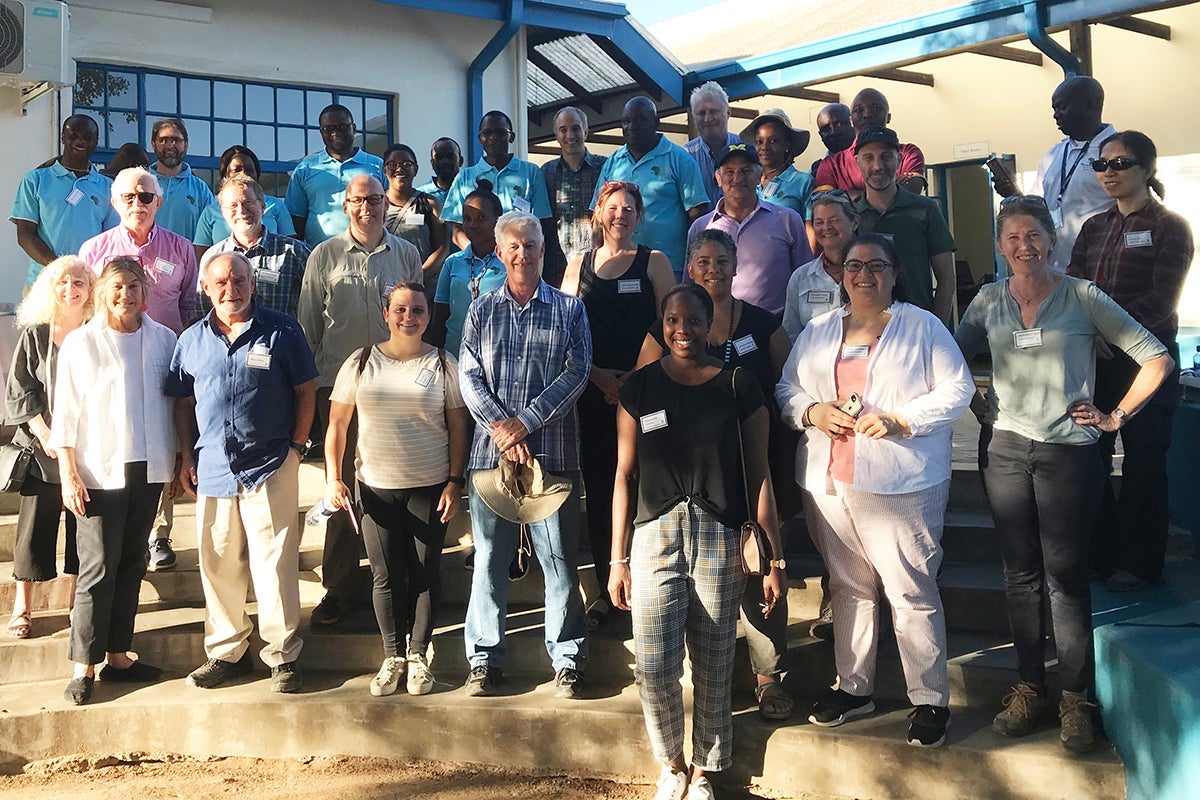Decade-long research project that explores aging in South Africa receives NIH/NIA funding for additional waves and national expansion, with a special emphasis on cognitive health

For immediate release: June 6, 2023
Boston, MA – Researchers from the Harvard Center for Population and Development Studies (HCPDS), the Harvard T.H. Chan School of Public Health, the University of the Witwatersrand, and the University of Cape Town have been awarded $27 million from the National Institute on Aging (NIA) to further their collaborative program project Health and Aging in Africa: A Longitudinal Study in South Africa (HAALSI). Plans for the next 5-year phase of HAALSI include a 4th and 5th survey wave of a community-representative cohort in rural Agincourt, South Africa, and the launch of a nationally representative longitudinal HAALSI survey across South Africa.
Since 2013, HCPDS’ flagship project has been examining the demographic and epidemiologic transition taking place in South Africa, one of many countries whose population has experienced a boost in life expectancy thanks to the successful scale up of antiretroviral therapy (ART) in response to the HIV epidemic, as well as general socioeconomic and health care improvements. These gains in life expectancy, however, have meant that the region has also experienced unprecedented levels of chronic, non-communicable diseases, such as cardiovascular and metabolic diseases and dementia, among its newly aging population. Identification of social and economic factors shaping health inequities is central to the study. By harmonizing specific data about the aging process in South Africa with data from other global studies of aging, such as the Health and Retirement Study (HRS) and sister studies in India, China, Brazil, the UK, Europe, the HAALSI study provides an opportunity to compare the biological, social, and economic determinants of chronic diseases and their effects on functional and health outcomes in aging populations on a global scale.
According to the World Health Organization, the number of people suffering from dementia globally is projected to rise from 55 million (with over 60% living in low- and middle-income countries) to 78 million in 2030, and 139 million by 2050. In this newly funded phase, HAALSI scientists plan to expand their focus on cognitive aging and dementia. The team will continue to use validated approaches to the study of dementia with an in-depth cognitive assessment on a sub-sample of HAALSI participants using the Harmonized Cognitive Assessment Protocol (HCAP). The resulting data from HAALSI will not only share insights from a region of the world where aging is not well understood, but can be harmonized with other studies of dementia and aging, helping to shed light on the nature of aging within a global context.
The grant is led by co-principal investigators Lisa Berkman, Thomas D. Cabot Professor of Public Policy and of Epidemiology at the Harvard T.H. Chan School of Public Health, and director of HCPDS, and Thomas Gaziano, associate professor of medicine at Harvard Medical School in the division of cardiovascular medicine at Brigham and Women’s Hospital. Berkman and Gaziano continue to lead the project with Stephen Tollman, director of MRC/Wits Rural Public Health and Health Transitions Research Unit (Agincourt), research professor and head of the Health and Population Division, School of Public Health, University of the Witwatersrand. They will be joined for the launch of the HAALSI national survey by Murray Leibbrandt, professor in the School of Economics, University of Cape Town, and Director of Southern Africa Labour and Development Research Unit (SALDRU).
Berkman said, “This study addresses critical issues shaping inequalities within South Africa and cross-country differences between South Africa and other countries in the Health and Retirement cluster of sister studies. It allows us to look at ways in which emerging low- to middle-income countries confront population aging in ways that are different from approaches in higher income countries where population aging has happened less rapidly.”
Gaziano added, “This significant grant unites experts from multiple disciplines, institutions, and countries, and allows us to look deeply into the changing patterns of healthy aging in Africa, giving us the opportunity to explore the interactions between lived experience in harsh conditions, endemic HIV/AIDS, social policy, and chronic conditions of aging, especially dementia and cardiometabolic conditions.”
The team will engage directly with policymakers and public health researchers in South Africa including Statistics South Africa, the South African Medical Research Council and South African Population Research Infrastructure Network, as the country takes on new challenges around ensuring the healthy aging of its population.
Visit the Harvard Chan School website for the latest news, press releases, and multimedia offerings.
Photo courtesy Harvard Center for Population and Development Studies
For more information:
Nicole Goguen
ngoguen@hsph.harvard.edu
###
The Harvard Center for Population and Development Studies is a University-wide research center that brings together scientists from all corners of the Harvard campus—and beyond—to make exciting advances in population research. Our mission is to improve well-being around the globe by better understanding the interaction of demographic changes with social, political, and economic development, and producing population-based evidence that informs policy and public discourse.
Harvard T.H. Chan School of Public Health brings together dedicated experts from many disciplines to educate new generations of global health leaders and produce powerful ideas that improve the lives and health of people everywhere. As a community of leading scientists, educators, and students, we work together to take innovative ideas from the laboratory to people’s lives—not only making scientific breakthroughs, but also working to change individual behaviors, public policies, and health care practices. Each year, more than 400 faculty members at Harvard Chan School teach 1,000-plus full-time students from around the world and train thousands more through online and executive education courses. Founded in 1913 as the Harvard-MIT School of Health Officers, the School is recognized as America’s oldest professional training program in public health.


